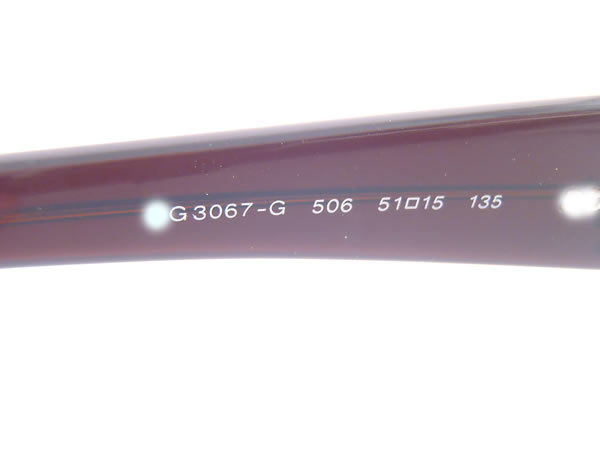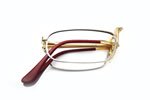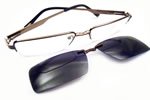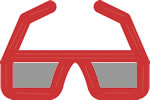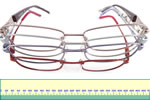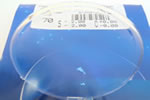How to Choose The Eyeglass Frame Size
An important thing, when choosing glasses besides color and shape is the eyeglass frame size. When you decide the size of the frame should keep in mind several things related to aesthetic and clear vision. Let's get them one at a time and see what are those features:
The frame must fit the size of the face
Frame size defines how you look. A frame too large or too small can harm your look, but also can lead to poor vision like:
- An extremely small frame force you move your head in the direction you look, otherwise you look beside or over the lenses.
- An overly large frame can causes optical aberrations if you don’t have high quality lenses.
So first you have to follow the limits to have a clear view. Then considering your face shape and according to your personality, you can choose a larger frame if you want to highlight them, or a smaller size frame to get lost on your face.
The exception is when you have a triangular face with a larger forehead. On such a face, a wide frame will stand out too much.
Once you find the right eyeglass frame size
You can use the old frame to purchase a new one, even online. You do this using the code on the eyeglass temple.
You will find this code on all glasses on one of the arms. It represents some key features, including the size of certain parts of glasses. As in the following example:
The code is: 3067-G 506 51•15 135
How to interpret this code:
3067-G: the frame code, each frame has a different code
506: usually the frame color code
51: the width of a hole for the lens (mm). In other words, this is the size of the lens that will be mounted in the frame.
15: nose bridge width (mm)
135: arm (temple) length (mm)
From these numbers, you have to remember the nose bridge width and the arm length (from the eye to behind the ear). Depending on the size of the nose and head, you can choose the right eyeglass frame size.
Interpupillary distance
In terms of eyeglasses prescription, there is no imposed size for the frame. The only size that need to be considered from the prescription you get from an ophthalmologist is the interpupillary distance.
What is the interpupillary distance? It is the length between your pupils, expressed in millimeters.
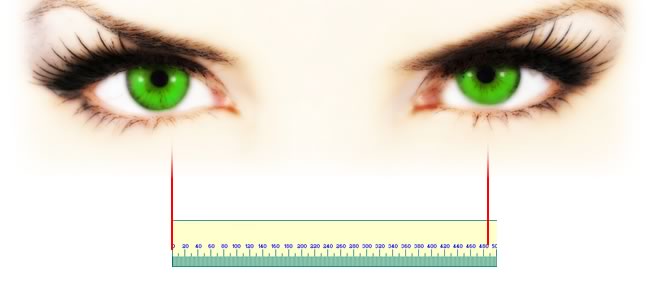
Interpupillary Distance
But do not misunderstand, your interpupillary distance does not specify the exact dimensions of your frame. You can choose different sizes, but with certain limitations. There will be frames too large or too small to meet your interpupillary distance.
So attention, you have to ask the optician if the chosen frame fits your interpupillary distance. Following this feature, the lens will be properly fitted, and you will have a clear view.
Number of diopters and their size
The only exception to the free choice of the frame when talking about lens diopter is when you have progressive eyeglasses. On this lens, we have three diopters (distance, intermediate and near), and because of this we need a minimum height of the frame, this way the lens can provide a clear vision at any distance.
From the aesthetic point of view
The lens thickness, a result of the diopter size, has something to say when you choose the frame size.
If you have higher diopters with (-), the small is the lens, the more thin is at the edges. So will favor you a smaller frame.
If you have higher diopters with (+), the larger is the lens, the more thin is at the edges. So a larger frame is more elegant.
But if you want to ignore these rules, there always exist the high index lenses, thinner and more attractive.
I know that your choice in terms of frames depends on what is fashionable at the moment, on your personal preferences, by accessories that you want to match your glasses, but the eyeglass frame size is an essential feature that need to be considered when choosing your glasses.
Quick Links - Eyeglass Frames
Home » Glasses Frames » Eyeglass Frame Size
Was this information useful?
1. Like Perfect-Eyeglasses-Guide.com on Facebook.
2. Share this article with your friends:
